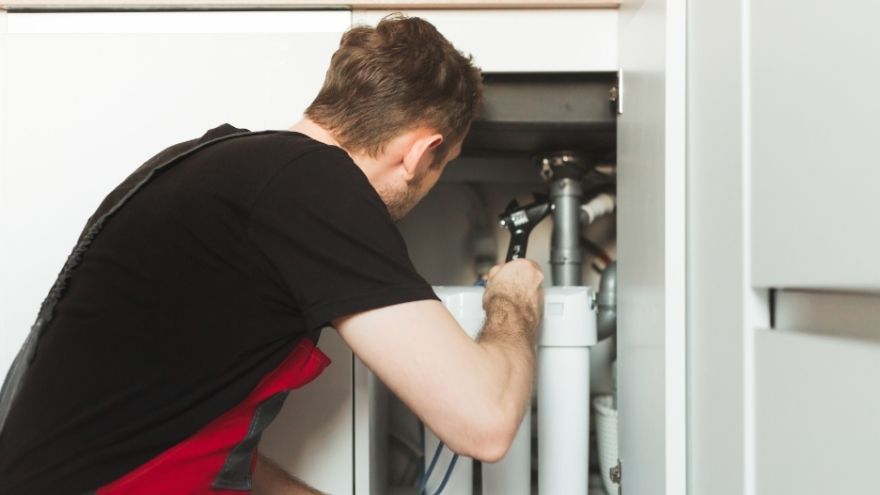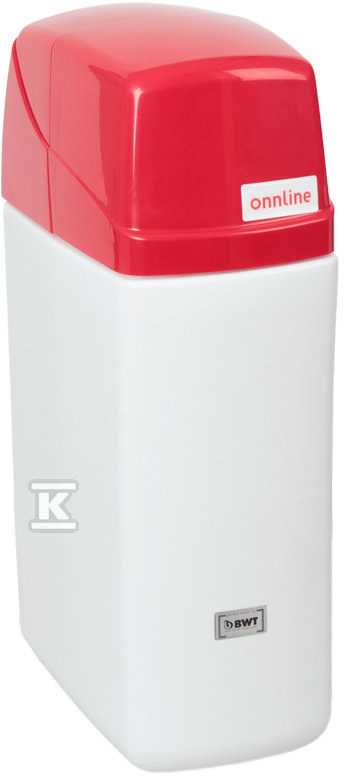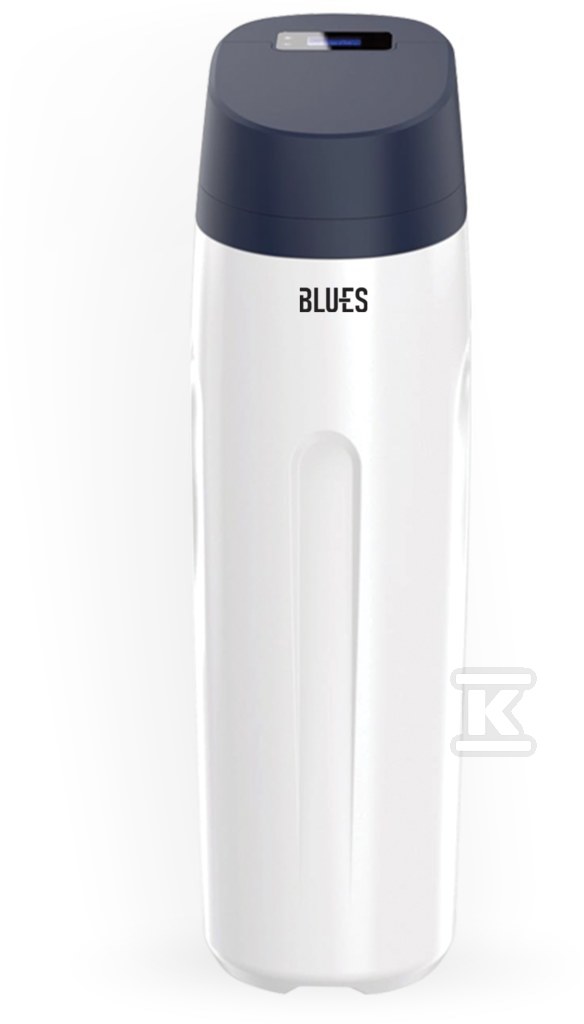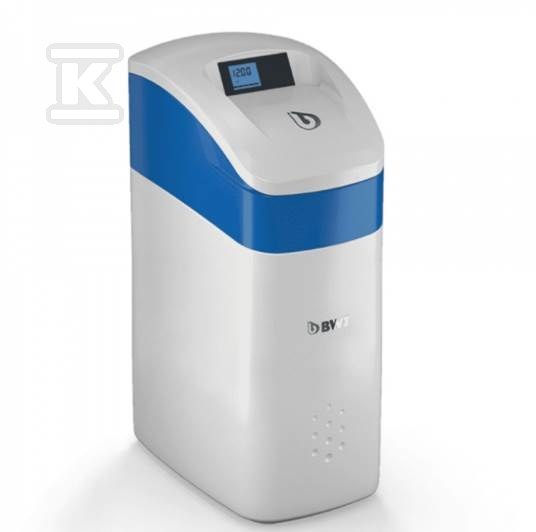The water that flows from our tap is often not perfectly clean and suitable for consumption. Its quality leaves much to be desired both in the context of health and the protection of household appliances from harmful scale deposits. Water contains various impurities, such as bacteria, sediments, calcium and magnesium ions. The latter are responsible for water hardness. Which treatment system should you choose to improve water quality? Check whether a water softener or a water treatment plant will be a better solution?

Check out water softeners at the Onninen wholesaler
What is hard water and how does it affect everyday life?
Water hardness is the result of dissolved minerals in water, primarily calcium and magnesium ions. Hard water leads to scale formation in water installations and on household appliances such as washing machines, dishwashers and kettles.
 Limescale deposits can cause appliance failures over time , and also reduce their efficiency. In addition , hard water negatively affects the quality of washing, skin and hair , which can become dry and irritated. The higher the water hardness, the more calcium and magnesium ions it contains.
Limescale deposits can cause appliance failures over time , and also reduce their efficiency. In addition , hard water negatively affects the quality of washing, skin and hair , which can become dry and irritated. The higher the water hardness, the more calcium and magnesium ions it contains.
Top 4 Hard Water Problems:
- Scale formation . Calcium and magnesium ions react with soap and detergents, forming deposits on fittings, washing machines, dishwashers and other appliances.
- Reduced efficiency of appliances . Limescale deposits clog pipes and appliances, reducing their efficiency and shortening their service life.
- Impaired taste and odor of water. Hard water has an unpleasant taste and odor.
- Skin and hair problems . Hard water dries out the skin and hair, making them rough and dull.
To counteract these problems, various water treatment systems are used, including water softeners and water treatment plants.
When would a water softener be a better use?
A water softener removes calcium and magnesium ions from water, which are responsible for water hardness. Water softening involves exchanging calcium and magnesium ions for sodium ions, and its purpose is to eliminate the problem of scale formation. Water softeners operate on the principle of ion exchange – hard minerals are replaced by sodium ions.
 Water softeners – utility advantages:
Water softeners – utility advantages:
- They prevent scale formation on the surfaces of appliances and pipes.
- They extend the life of household appliances.
- They improve the comfort of everyday water use, including washing, cleaning and bathing.
- They reduce the consumption of detergents and cleaning agents.
One type of water softener is a compact softener, which is particularly popular in homes with limited space. A compact softener combines the functions of softening and storing water, and is a relatively practical solution in small rooms.
Despite their many advantages, water softeners do not solve all water quality problems. It is worth emphasizing that softened water is not free of other contaminants. Therefore, in the case of a need for comprehensive water purification, a water treatment plant may be a better solution.
What is a water treatment plant?
A water treatment plant is a more advanced device that comprehensively purifies water from various contaminants , such as bacteria, heavy metals, chlorine, organic compounds and excess minerals that cause water hardness. Water treatment plants often include various filters that remove both mechanical contaminants and chemical compounds harmful to health.
The main advantages of a water treatment plant are:
- Improving water quality : A water treatment plant removes contaminants from water, making it cleaner and safer to drink.
- Health protection : Water treatment plant protects us from contaminants in water that may be harmful to health. Eliminates bacteria and chemical compounds;
- Improving the taste and smell of water : The water treatment plant removes chlorine and other contaminants that impair the taste and smell of water.
Water treatment plants are more versatile because they fully treat water , not just soften it. A home water treatment plant is a solution dedicated to those who want to provide themselves with maximum protection against various harmful substances in water.
What is a better solution: a water treatment plant or a softener?
The choice between a water softener and a water treatment plant depends on individual needs and the characteristics of the water available in the network.
 Before you decide whether to buy a water conditioner or softener, it is worth asking yourself a few questions:
Before you decide whether to buy a water conditioner or softener, it is worth asking yourself a few questions:
- Is the main problem only water hardness? Then the optimal choice will be a water softener that effectively removes calcium and magnesium ions, eliminating the problem of sediment and scale in the installation.
- Are other contaminants a problem in addition to water hardness? If the water quality leaves much to be desired due to the presence of bacteria and other compounds, a water treatment plant that offers full water treatment would be a better choice.
- Is your space limited? In that case, you may want to consider purchasing a compact softener, which takes up less space than a standard water treatment plant.
A water softener will be the right choice if the problem is mainly water hardness and limescale. A water treatment plant is a better solution if, in addition to water hardness, the user wants to get rid of other impurities and improve the quality of water throughout the house. Compact water softeners are suitable for small houses or apartments.
Each modern and functional water conditioner and softener available in the Onninen wholesaler allows you to adjust the water quality to the needs of the tenants of each house. Thanks to the installation of professional solutions available in Onninen, you can effectively improve the water quality, which translates into the comfort of everyday use and the durability of household appliances.